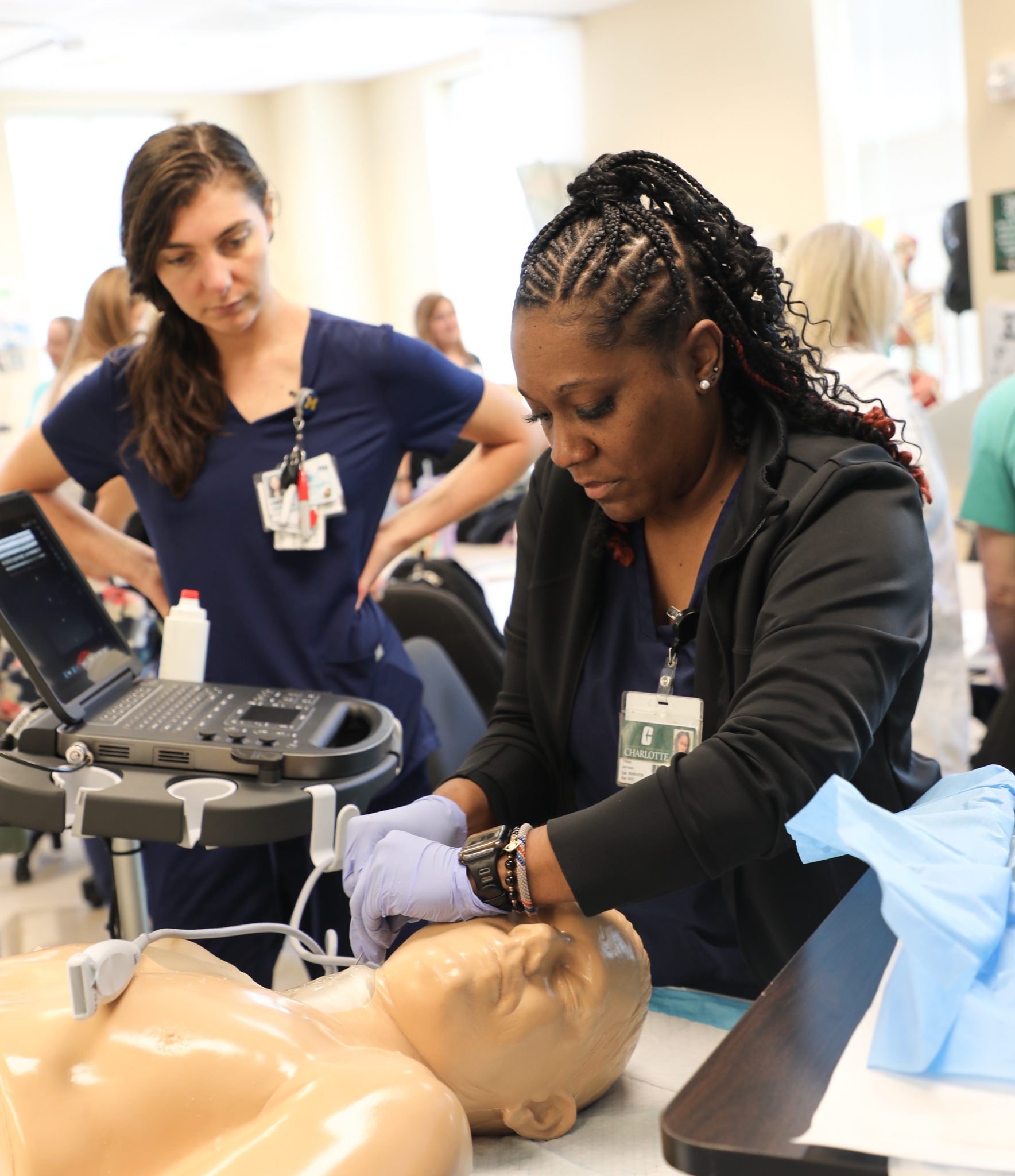Bachelor of Science in Nursing: Accelerated Option (ABSN)

Bachelor of Science in Nursing: Accelerated option (ABSN)
Bachelor of Science in Nursing Accelerated Option Informational Session
Please join us for informational sessions about the Bachelor of Science in Nursing Accelerated Option, offered by the UNC Charlotte School of Nursing, on the following dates:
Monday, September 30th, 2024 at 5 PM
Monday, October 28th, 2024 at 5 PM
Monday, November 25, 2024 at 5 PM
For more information, please contact the following faculty members:
Susan Lynch, PhD, RN, CNE, Associate Director Undergraduate Programs, Clinical Associate Professor
Teresa Cronell, EdD, MSN, RN, CCRN, Undergraduate Program Coordinator, Lecturer
The Accelerated Bachelor of Science in Nursing (ABSN) option at the UNC Charlotte School of Nursing is designed for students who already hold a degree in another discipline, providing a fast, affordable, and efficient path to becoming a Registered Nurse (RN). This program begins Fall 2025 and can be completed in just four semesters (Fall, Spring, Summer, Fall), preparing students to take the NCLEX-RN exam.
The ABSN option combines advanced learning strategies, including high-fidelity simulation in a state-of-the-art Learning Resource Center, with support from dedicated student success tutors throughout the program. This hands-on, immersive experience ensures that graduates are well-prepared to enter the nursing profession and make an immediate impact in healthcare settings.
Admission Information for Admission to the Accelerated BSN Option:
- The School of Nursing (SON) admits to the Accelerated BSN nursing program option in the Fall semester only.
- Students are admitted to the University as pre-nursing majors and then apply to the upper division when prerequisites are completed.
- Students applying for the Fall ABSN admission option should complete required prerequisite courses by the end of the Spring semester preceding their admission.
- Students must have a previous bachelor’s degree, Associate in Arts degree, or Associate in Science degree to be eligible for the ABSN Option.
- According to University policy, the general education requirements are exempt for students with a previous bachelor’s degree or an associate degree from a North Carolina community college. For students with an associate degree from outside of North Carolina, courses must be evaluated to determine if general education requirements have been met.
- For the prerequisite science courses and respective labs and for NURS 2100 and NURS 2200, all of which require a grade of B or above, Pre-Nursing students may repeat each course once to earn a B or above prior to applying to the ABSN option. If a student does not earn a B or above in those courses, then they will be ineligible for admission to the Nursing major and will need to change their major.
- The SON admissions committee will evaluate applicants based on prerequisite grade point average (GPA) and essay questions. Optional criteria include 50 volunteer hours and those applicants who have earned 30 credit hours at UNC Charlotte at time of application.
- The volunteer hours form can be found online here. Volunteer hours should be completed in a human based health care environment or a community agency that serves persons in need such as homeless shelters, food banks, soup kitchens, meals on wheels, and American Red Cross.
- Students admitted to the Upper-Division Pre-Licensure Nursing major must be certified as a Nurse Aide I (CNA I) and listed in the North Carolina Nurse Aide Registry prior to the enrollment date.
*Students must apply to, both, UNC Charlotte and the School of Nursing.
Application Deadlines
*This program admits applicants once a year
Priority Deadline: JanUARY 31
Final Deadline: JunE 1
Licensure Eligibility
Graduates are eligible to sit for the National Council Licensure Examination for Registered Nurses (NCLEX-RN) The program provides the student with a background in:
- Liberal arts, through the general education requirements of the University
- Sciences, through the required nursing pre-requisite courses
- Generalist nursing education
BSN graduates are prepared to function in a variety of care settings to include hospitals, clinics, public health, and home health agencies, hospice, and long-term care facilities.


